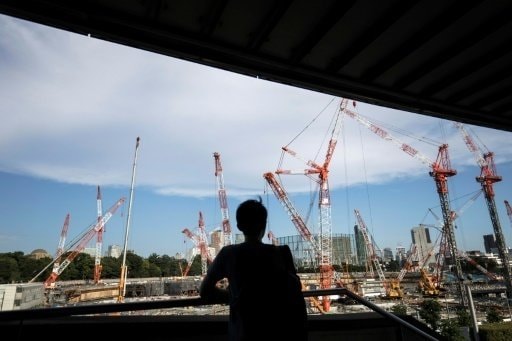Suicide in Japan has become a matter of national concern.
The Tokyo government must approve a plan to reduce suicides by 30% over the next 10 years amid a worryingly high suicide rate in the country.
 |
| High work pressure in Japan is said to be the leading cause of suicides. Photo: AFP |
According to AFP news agency, Japan has the highest suicide rate in the Group of Seven (G7) industrialized nations with more than 20,000 people taking their own lives each year.
The Tokyo government's goal in its plan, titled "Comprehensive Measures Against Suicide," announced today (July 25), is to reduce the suicide rate from 18.5 per 100,000 people in 2015 to 13 in 2025, equivalent to the rate in the United States (13.4%) and Germany.
This means Prime Minister Shinzo Abe's government will strive to reduce the number of suicides to below 16,000 by 2025.
After peaking in 2003 with 34,427 suicides, the number in Japan has fallen for seven consecutive years since 2010, down to 21,897 in 2016.
According to the Japanese Ministry of Health, in 2016, this country of 127 million people ranked 6th in suicide rate, behind Lithuania (30.8), South Korea (28.5) and Suriname (24.2).
By analyzing the causes of suicide, the plan calls for addressing issues such as long working hours, postpartum depression and prejudice against minority groups.
The new target is more ambitious than the 2007 plan, which aimed to reduce suicides by 20% over a decade. The latest plan will be reviewed every five years.
Regarding the problem of overtime work at the office, Japan will focus on ensuring the mental health of workers and preventing the abuse of power by superiors to exert pressure in the workplace.
In addition, the government decided to set up a hotline to raise awareness and understanding of harassment in schools and workplaces.
These measures were introduced after the 2015 suicide of a female employee of advertising company Dentsu who had to regularly work 100 hours of overtime per month attracted public attention.
The incident forced the President of Dentsu company to resign afterwards.
Regarding postpartum depression, the Japanese government is committed to assessing the mental health and living conditions of postpartum mothers through health checkups and child-rearing support.
To tackle the high suicide rate among young people in their 20s, Japan will boost educational efforts to teach students how to seek help at school; focus on monitoring cases of despair on social media and building better human relationships.
Although the Japanese government is making every effort to tackle the suicide problem, there are still many challenges ahead, as the rate of people knowing about anti-suicide support networks is still quite low.
A 2016 survey by Japan's Health Ministry found that only 6.9% of respondents knew about mental health counseling services, and 5% knew about the government-initiated suicide prevention week in September. In addition, 23.6% of adults surveyed had seriously considered suicide.
According to Tuoi Tre
| RELATED NEWS |
|---|
